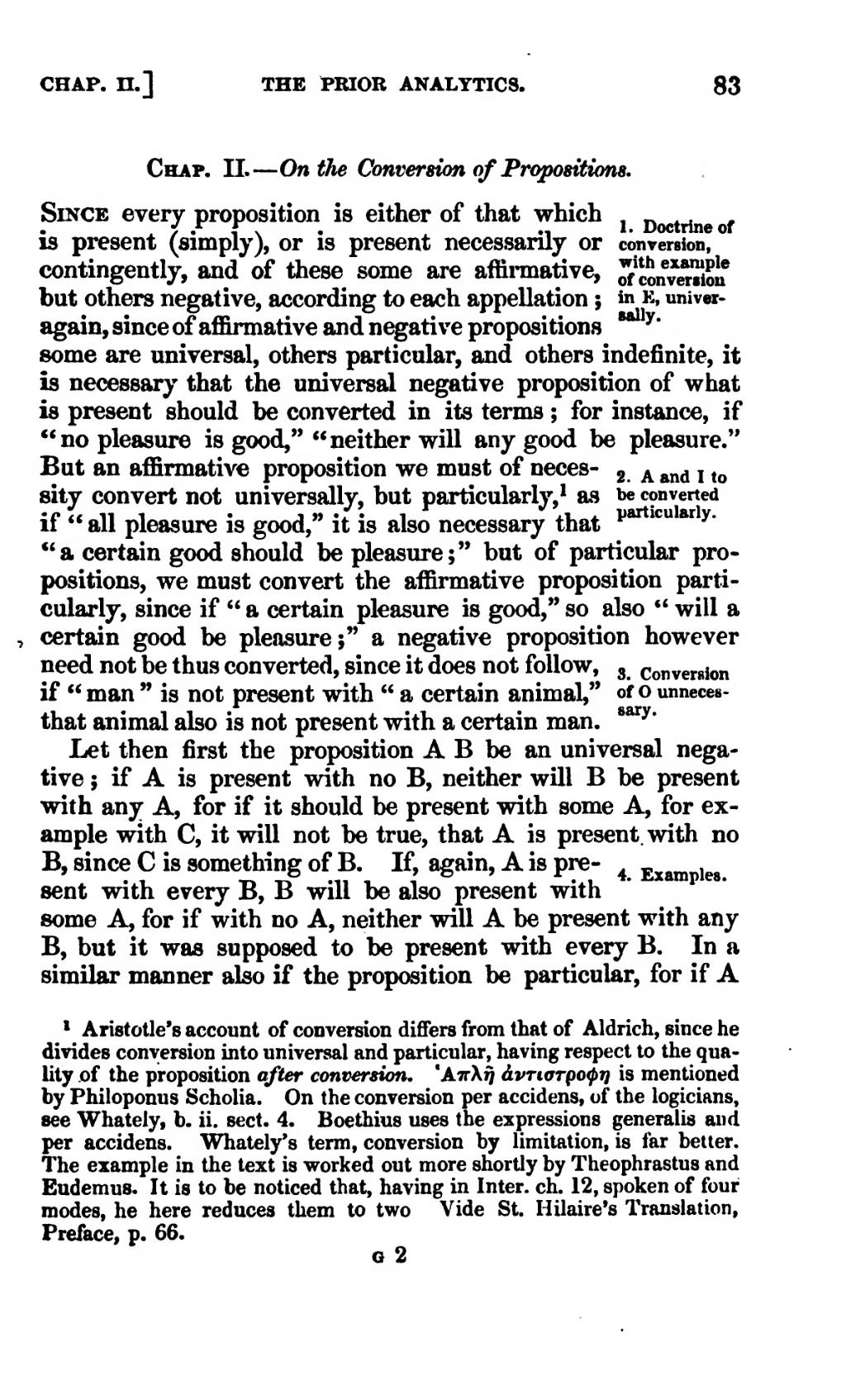Chapter 2
Since every proposition is either of that which is present (simply), or is present necessarily or contingently, and of these some are affirmative, but others negative, according to each appellation; again, since of affirmative and negative propositions some are universal, others particular, and others indefinite, it is necessary that the universal negative proposition of what is present should be converted in its terms; for instance, if "no pleasure is good," "neither will any good be pleasure." But an affirmative proposition we must of necessity convert not universally, but particularly, as if "all pleasure is good," it is also necessary that "a certain good should be pleasure;" but of particular propositions, we must convert the affirmative proposition particularly, since if "a certain pleasure is good," so also "will a certain good be pleasure;" a negative proposition however need not be thus converted, since it does not follow, if "man" is not present with "a certain animal," that animal also is not present with a certain man.
Let then first the proposition A B be an universal negative; if A is present with no B, neither will B be present with any A, for if it should be present with some A, for example with C, it will not be true, that A is present with no B, since C is something of B. If, again, A is present with every B, B will be also present with some A, for if with no A, neither will A be present with any B, but it was supposed to be present with every B. In a similar manner also if the proposition be particular, for if A
